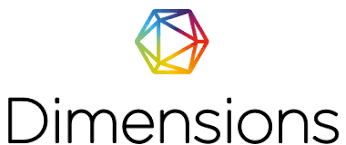Efektifitas Reaktor Pengolahan Limbah Cair Laboratorium Menggunakan Arang Kulit Buah Kakao (Theobroma cacao)
 Abstract views: 93
,
Abstract views: 93
,
 PDF downloads: 148
PDF downloads: 148
Abstract
The liquid waste processing reactor is a toll used to reduce impurities in waste, including heavy metals. the laboratory is the center of research and produce various wastes, both physical, chemical and biological. Cocoa shells is an agricultural waste and is one the organic waste whose volume is abundant, which the disturbs the environment, which causes unpleasant odors and a medium for insects. Cocoa shells have the potential to be processed into charcoal because the contain high cellulose, hemicellulose and lignin. The use of cocoa shells charcoal as an adsorbent for Cu2+ contained in laboratory waste is a solution to reduce environmental pollution by utilizing agriculutural waste to treat laboratory waste.The purpose this research was to determine of the optimum conditions for the waste treatment reactor including the diameter of the adsorbent particles, the height of the adsorbent in the reactor and the flow rate of waste passing through the reactor column. Waste treatment system with a continuous system and waste analysis before and after passing through the reactor using AAS.Preparation of cocoa shell charcoal by heating at a temperature of 140 oC for about 4 hours.The optimum conditions for the reactor occurredat a particle diameter of 120 mesh, an adsorbent height of 25 cm and a rate of 68,39 mL/second in the reactor column with a diameter of 2 inches and height of 50 cm.The effectiveness of the reactor using cocoa shell charcoal at the optimum conditions.
References
Audiana,M.,Apriani,I.,&Kadaria,U.(2017).PengolahanLimbahCairLaboratoriumTeknikLingkunganDenganKoagulasiDanAdsorpsiUntukMenurunkanCOD,FeDanPb.JurnalTeknologiLahanBasah,5(1),1–10.Emda,A.(2014).LaboratoriumSebagaiSaranaPembelajaranKimiaDalamMeningkatkanPengetahuanDanKeterampilanKerjaIlmiah.LantanidaJournal,2(2).Etorki,A.M.,El-rais,M.,Mahabbis,M.T.,&Moussa,N.M.(2014).RemovalofSomeHeavyMetalsfromWastewaterbyUsingofFavaBeans.AmericanJournalofAnalyticalChemistry,5(March),225–234.Firdaus,M.L.(2012).Studiperbandinganberbagaiadsorbensintetisdanalamiuntukmengikatlogamberat.SemnasPendidikanSains,3.Hayati,U.P.,&Sawir,H.(2017).PemanfaatanLimbahKulitBuahKakaoSebagaiAdsorbenUntukPenyerapanIonLogamKromium(VI).JurnalSainsDanTeknologi,17(1).Indonesia,S.N.(2004).Airdanairlimbah–Bagian6:Caraujitembaga(Cu)denganSpektrofotometriSerapanAtom(SSA)-nyala.Kamble,P.N.,Bodade,R.G.,Sagar,A.K.,Pondhe,G.M.,Gaikwad,V.B.,&Mane,A.V.(2018).RemovalofCopper(II)UsingBio-adsorbentsfromPreparedAqueousSolution.NatureEnvironmentandPollutionTechnologyAnInternationalQuarterlyScientificJournalOriginal,17,215–222.Maheswari,P.,Pattabhi,S.,&Malathi,S.(2017).AdsorptionOfCU(II)IonFromAqueousSolutionUsingAcidTreatedSagoWasteAsAnAdsorbent.EuropeanJournalofPharmaceuticalandMedicalResearch,4(11),296–301.Masitoh,Y.F.,&Sianta,M.M.(2013).PemanfaatanArangAktifKulitBuahCoklat(Thebromacacao.L)SebagaiAdsorbenLogamBeratCd(II)DalamPelarutAir.UNESAJuornalofChemistry,2(2),23–28.Mawardi,Munaf,E.,Kosela,S.,&Wibowo,W.(2014).PrmisahanIonKrom(III)danKrom(IV)DalamLarutanDenganMenggunakanBiomassaAlgaHujauSpirogysaSubsalsaSebagaiBiosorben.Reaktor,15(1),27–36.Mohammed,F.M.(2011).ModellingandDesignofWaterTreatmentProcessesUsingAdsorptionandElectrochemicalRegeneration.Tesis,EngineeringandPhysicalSciences.UniversityofManchester.Pabbenteng,&Alwina,E.(2020).DesainReaktorPengolahanLimbahCairLaboratorium.JurnalPengendalianPencemaranLingkungan(JPPL),2(1),15–21.Podala,K.,Walanda,D.K.,&Napitupulu,M.(2015).BiocharcoalDariKulitKakao(TheobromacacaoL)UntukmengadsorpsiIonLogamTimbal.J.AkademikaKim,4(August),136–142.Saniyyah,N.(2014).SekamPadiuntukMenyerapIonLogamTembagadanTimbaldalamAirLimbah.Valesni,4(1).Setiawan,I.K.A.,Napitupulu,M.,&Walanda,D.K.(2018).BiocharcoalDariKulitRambutan(NepheliumLappceumL)SebagaiAdsorbenZinkDanTembaga.J.AkademikaKim,7(November),193–198.Yusoff,S.N.M.,Kamari,A.,Putra,W.P.,Ishak,C.F.,Mohamed,A.,Hashim,N.,&Isa,I.(2014).RemovalofCu(II),Pb(II)andZn(II)IonsfromAqueousSolutionsUsingSelectedAgriculturalWastes:AdsorptionandCharacterisationStudies.JournalofEnvironmentalProtection,5(March),289–300.Zarkasi,K.,Moelyaningrum,A.D.,&Ningrum,P.T.(2018).PenggunaanArangAktifKulitDurian(DuriozibethinusMurr)TerhadapTingkatAdsorpsiKromium((Cr6+)PadaLimbahBatik.EFEKTOR,5,67–73.
Copyright (c) 2020 Pabbenteng, Puspitasari

This work is licensed under a Creative Commons Attribution 4.0 International License.
















